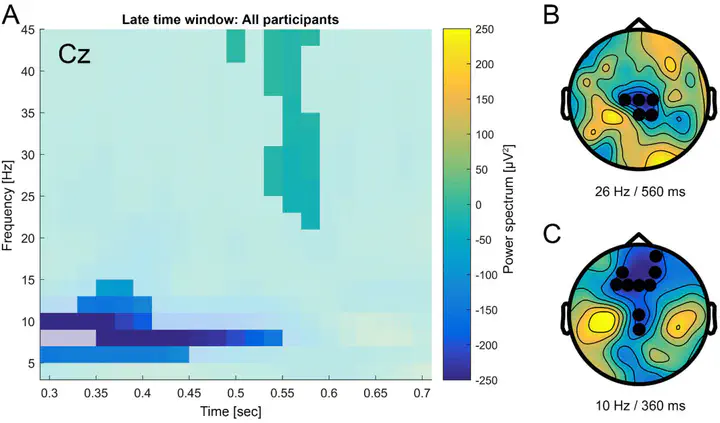Neuroplasticity in the phonological system: The PMN and the N400 as markers for the perception of non-native phonemic contrasts by late second language learners

Abstract
Second language (L2) learners frequently encounter persistent difficulty in perceiving certain non-native sound contrasts, i.e., a phenomenon called “phonological deafness”. However, if extensive L2 experience leads to neuroplastic changes in the phonological system, then the capacity to discriminate non-native phonemic contrasts should progressively improve. Such perceptual changes should be attested by modifications at the neurophysiological level. We designed an EEG experiment in which the listeners’ perceptual capacities to discriminate second language phonemic contrasts influence the processing of lexical-semantic violations. Semantic congruency of critical words in a sentence context was driven by a phonemic contrast that was unique to the L2, English (e.g.,/ɪ/-/i:/, ship – sheep). Twenty-eight young adult native speakers of French with intermediate proficiency in English listened to sentences that contained either a semantically congruent or incongruent critical word (e.g., The anchor of the ship/*sheep was let down) while EEG was recorded. Three ERP effects were found to relate to increasing L2 proficiency: (1) a left frontal auditory N100 effect, (2) a smaller fronto-central phonological mismatch negativity (PMN) effect and (3) a semantic N400 effect. No effect of proficiency was found on oscillatory markers. The current findings suggest that neuronal plasticity in the human brain allows for the late acquisition of even hard-wired linguistic features such as the discrimination of phonemic contrasts in a second language. This is the first time that behavioral and neurophysiological evidence for the critical role of neural plasticity underlying L2 phonological processing and its interdependence with semantic processing has been provided. Our data strongly support the idea that pieces of information from different levels of linguistic processing (e.g., phonological, semantic) strongly interact and influence each other during online language processing.